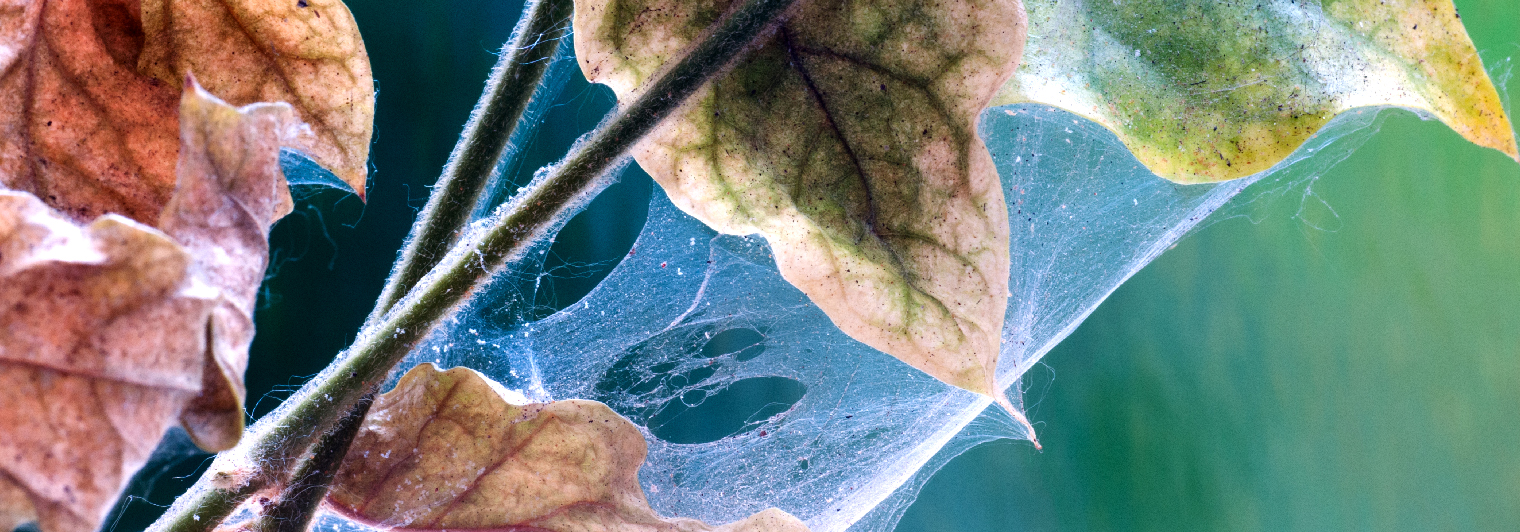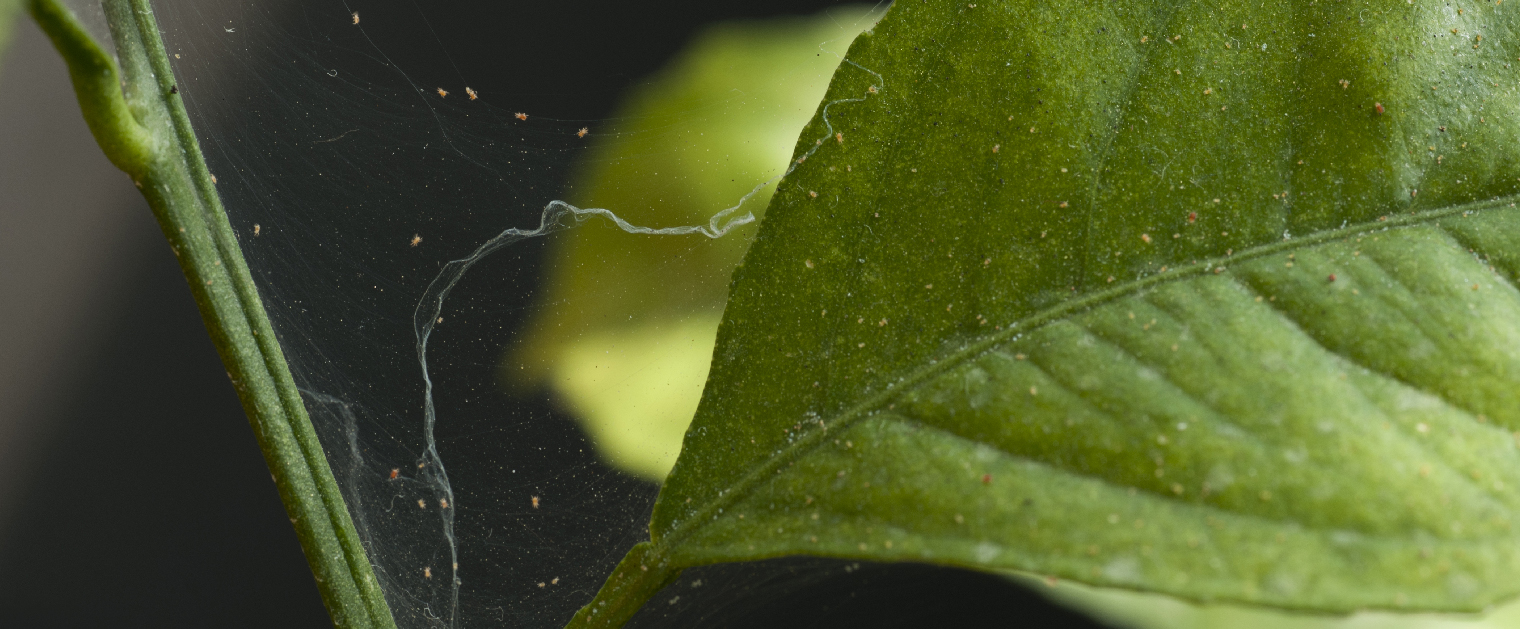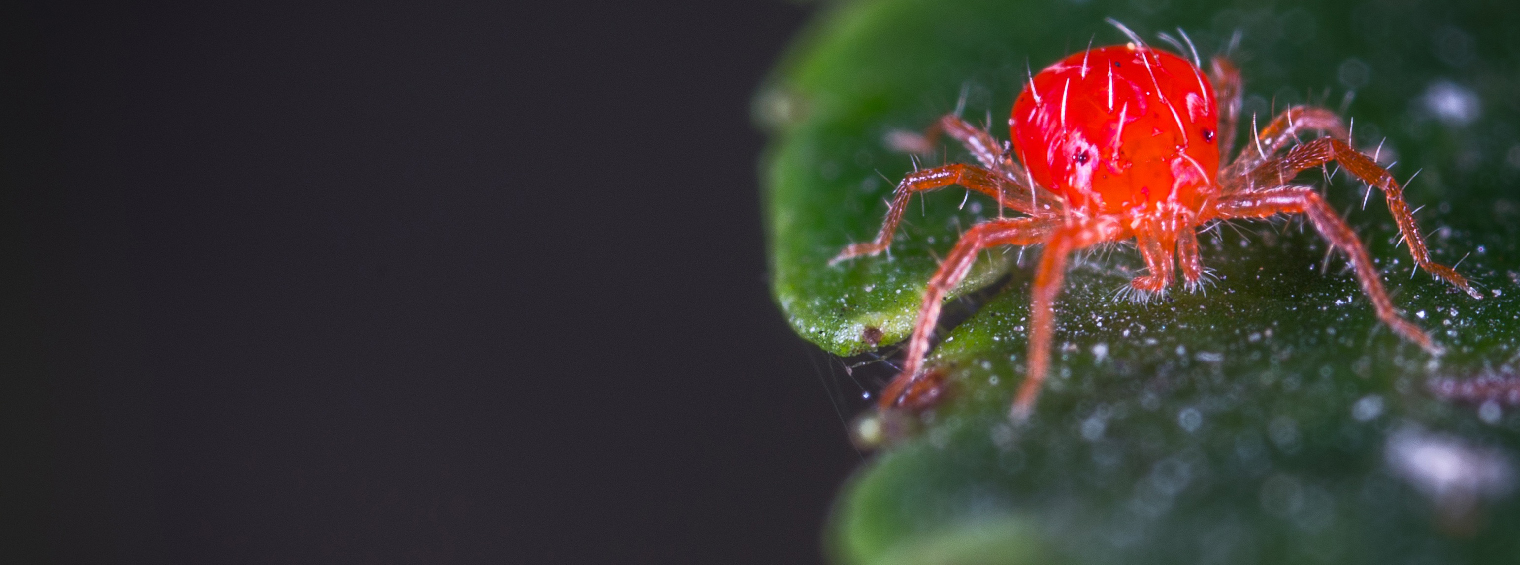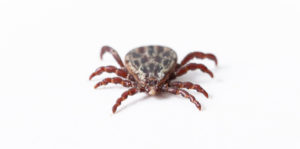If you need to get rid of spider mites, chances are you’ve discovered the resulting damage of their infestation. These tiny little bugs are notoriously hard to spot, but the havoc they wreak on your plants isn’t exactly discreet. They live in colonies, so despite their small size, they have strength in numbers. They reproduce incredibly quickly, especially in our hot Fort Lauderdale climate, so early intervention is necessary to help stop the spread. Here are our recommendations for how to get rid of spider mites before they take over your garden plants

The Signs of Spider Mites on Plants
Spider mites have a strange way of feeding off your plants. Instead of chomping big holes in leaves like caterpillars and other pests, spider mites pierce the leaves and then suck out the inner fluid, dehydrating the plant. Early on, the signs may be subtle, but once a whole spider mite colony is guzzling down plant sap, it really starts to take a toll.
First, you may notice some little spots of discoloration on the leaves. The whole leaf will start to take on a yellow color and may curl and fall off. To confirm that this damage is the result of spider mites and not a fungal infection, check the stem and the underside of the leaves for fine, web-like threading. As their name suggests, spider mites come from the spider family, and they spin webs just like the rest. So, if you see the combo of yellow, spotty leaves and wispy spider webs, the spider mites have moved in, and it’s time to get them out.

How to Get Rid of Spider Mites Naturally
Using chemical pesticides is generally a last resort if nothing else is working to help you get rid of spider mites. In fact, pesticide use can actually contribute to the spider mite problem, because it kills off all their natural predators. Before you grab a bottle of bug killer, try some of these natural methods for killing off those pesky mites:
- Insecticidal Soap: Pick up some natural castile soap (not chemical dish soap), mix it up with some water, and fill a spray bottle. Spray a generous coat of this solution all over the plant, especially the undersides of the leaves. Repeat this process every few days until you notice an improvement. Spider mites reproduce and mature very quickly—especially in the hot, dry weather—so following up with repeat applications helps get rid of any new hatchlings.
- Neem Oil: This natural oil sourced from the neem tree is an incredibly powerful natural insecticide. Dilute it in some water according to the directions on the container, fill a spray bottle, and similarly to the soap method, coat the plant generously every 3 days or so. Just make sure to apply the solution when the temperature is below 90 F. Applying it at night time is probably your best bet if the weather has been consistently hot. Avoid spraying it when bees are active during the day.
- Release Beneficial Insects: Some people are a bit squeamish at the thought of releasing more bugs into their garden to tackle an existing bug problem, but it’s one of the most eco-friendly and effective solutions. Ladybugs are a popular option, and you have to admit, they’re much cuter than the average creepy crawly. Visit us at our garden center in Fort Lauderdale to browse our selection of predatory insects— usually, they’re packaged up and refrigerated which slows them down and puts them in hibernation mode, but once they’re brought back up to room temperature, they’ll be hungry and ready to hunt some spider mites.
- Organic Insecticides: Instead of opting for chemical pesticides that can potentially kill off beneficial insects and coat your garden vegetables with toxic substances, look for an organic insecticide, such as one that contains Beauveria bassiana. This is a natural fungus that attacks all sorts of garden pests — even the extra resilient ones — without damaging your crops. Other botanical insecticides are available that won’t affect the quality or flavor of your produce, so visit us at our garden center and we’ll help you find one that’s safe and effective.

Extra Tips to Prevent and Get Rid of Spider Mites
If you want to avoid an army of spider mites infiltrating your garden, it’s important to make conditions less hospitable for them. What might seem like a little harmless garden debris or dust buildup can actually be an open invitation for spider mites to set up camp. Follow these guidelines for preventing spider mite infestation, plus a few bonus tips for preventing further spread if they’ve already arrived:
- Water Your Plants Correctly. Stress from over- or under-watering can make your plants especially vulnerable to spider mite colonies, so water your plant roots deeply, and then wait for the soil to dry before re-watering.
- Clean Dust Off of Plant Foliage. Dust buildup attracts mites, so using a hose to spray down your plants will help keep them fresh. If you’ve got garden plants with dense foliage that’s susceptible to mildew, it might be better to wipe them down with a slightly moist cloth, though this is a bit more time-consuming.
- If an Entire Plant is Fully Infested, Just Toss It. You don’t want the spider mites to spread to your surrounding plants, so losing one won’t be the end of the world. Again, try to do it on a day that isn’t too windy, so the mites don’t sail away on the breeze and end up on the other side of your yard.
- Apply Horticultural Oil on Your Fruit Trees in Late Fall or Winter. This will help kill off all the overwintering spider mite eggs, so they won’t hatch once the temperatures begin rising.
Spider mites are tiny creatures with big appetites, and their colonies are pretty skilled at sneaking into gardens unnoticed. Knowing the early signs of spider mite damage will help keep your plants healthy and happy, and knowing the safest ways to get rid of spider mites will help keep Mother Nature happy too. Visit Living Color Garden Center here in Fort Lauderdale, and we’ll connect you with all the supplies you need to win the battle against these bothersome bugs.

